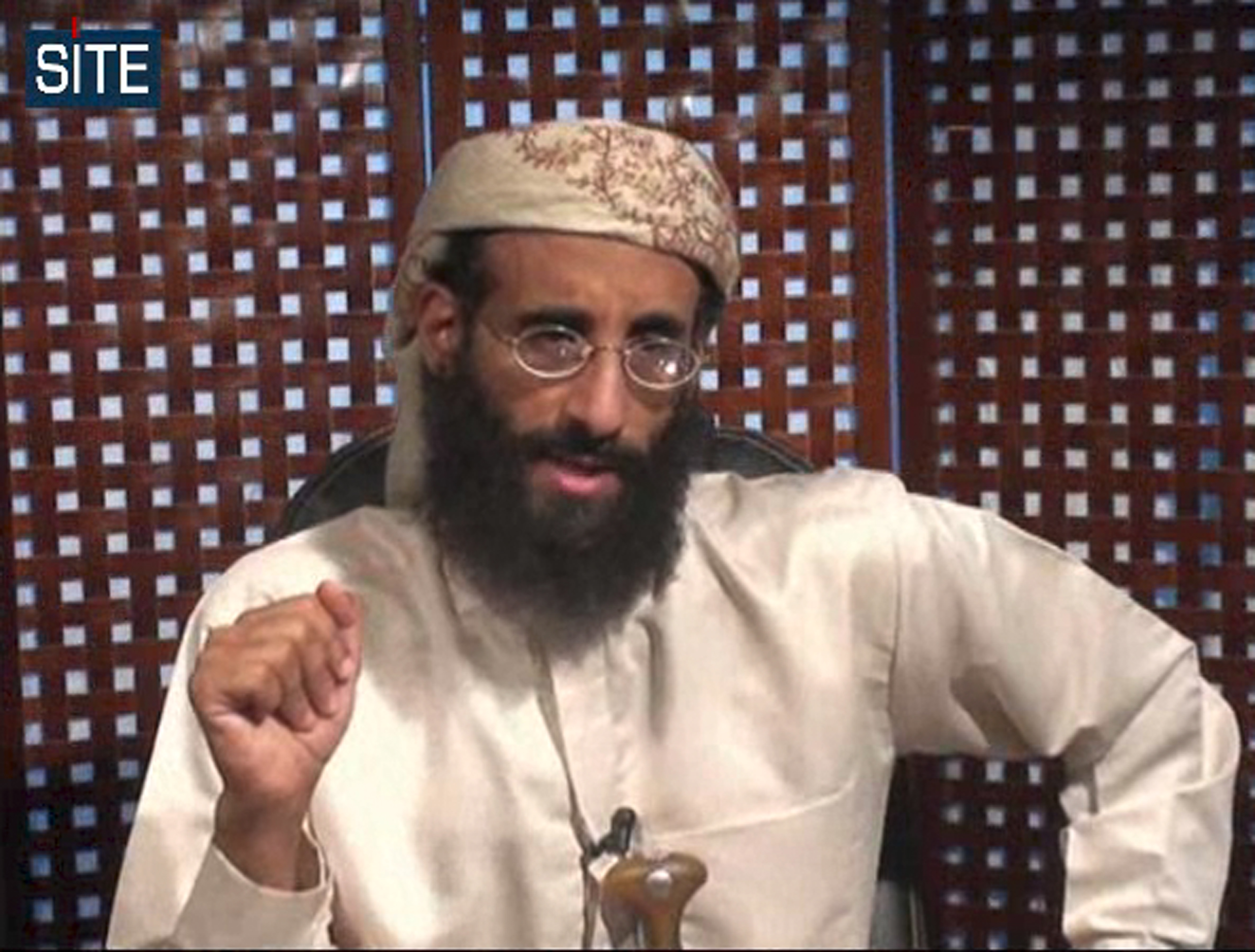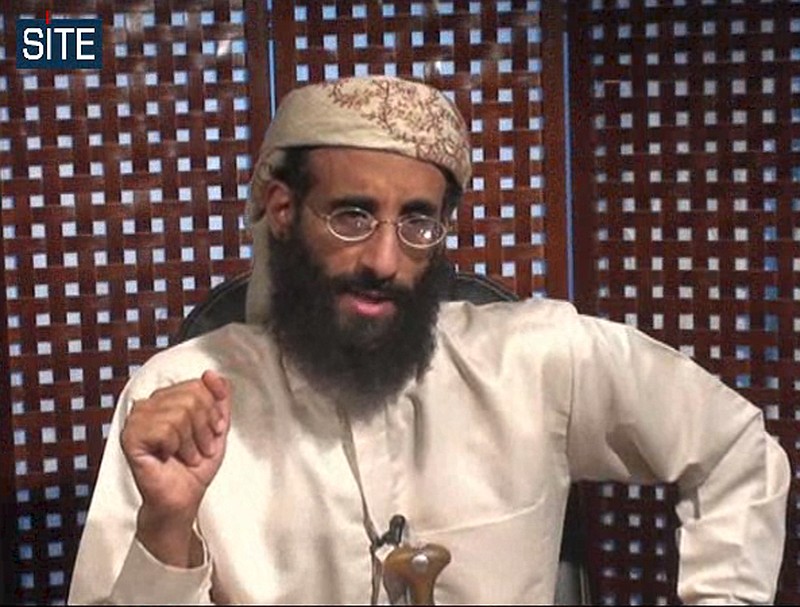 In this Nov. 8, 2010 file image taken from video and released by SITE Intelligence Group on Monday, Anwar al-Awlaki speaks in a video message posted on radical websites. A senior U.S. counterterrorism official says U.S. intelligence indicates that U.S.-born al-Qaida cleric Anwar al-Awlaki has been killed in Yemen. (AP Photo/SITE Intelligence Group, File)
In this Nov. 8, 2010 file image taken from video and released by SITE Intelligence Group on Monday, Anwar al-Awlaki speaks in a video message posted on radical websites. A senior U.S. counterterrorism official says U.S. intelligence indicates that U.S.-born al-Qaida cleric Anwar al-Awlaki has been killed in Yemen. (AP Photo/SITE Intelligence Group, File)KIMBERLY DOZIER, Associated Press
MATT APUZZO, Associated Press
WASHINGTON - American forces targeted al-Qaida cleric Anwar al-Awlaki's convoy with a drone and jet attack and believe he's been killed, a U.S. counterterrorism official said Friday.
The U.S.-born cleric known for fiery anti-American rhetoric has been suspected of ties to the Fort Hood attack and the attempted Christmas Day airliner bombing in 2009.
The counterterrorism official was not authorized to speak publicly and spoke on condition of anonymity.
Word from the U.S. comes after the government of Yemen reported that al-Awlaki was targeted and killed Friday about five miles from the town of Khashef, some 87 miles from the capital Sanaa. He would be the most prominent al-Qaida figure to be killed since Osama bin Laden.
U.S. officials have said they believe al-Awlaki directed, led and planned attempted attacks on the U.S. He was believed to have inspired the Fort Hood shooter, Army psychiatrist Maj. Nidal Hasan, and to have played a more direct role in the Christmas 2009 attempted bombing of a Detroit-bound airliner. Hasan is charged with 13 counts of premeditated murder and 32 counts of attempted premeditated murder in the November 2009 attack at Fort Hood, Texas.
Al-Awlaki's death "will especially impact the group's ability to recruit, inspire and raise funds as al-Awlaki's influence and ability to connect to a broad demographic of potential supporters was unprecedented," said terrorist analyst Ben Venzke of the private intelligence monitoring firm, the IntelCenter.
But Venzke said the terror group al-Qaida in the Arab Peninsula will remain the most dangerous regional arm "both in its region and for the direct threat it poses to the U.S. following three recent failed attacks," with AQAP leader Nasir al-Wahayshi still at large.
Venzke said al-Awlaki was due to release a new article in the next issue of AQAP's Inspire magazine justifying attacking civilians in the West.
"The article, which may already have been completed, was announced by AQAP on Tuesday as being entitled, 'Targeting Populations of Countries at War with Muslims,'" he said.
